Cua Dong General Hospital applies advanced techniques to effectively treat urinary stone disease.
(Baonghean.vn) - With the goal of providing high-quality medical services, saving time and treatment costs for patients, recently, Cua Dong General Hospital (Vinh City) has applied many advanced techniques, improving the effectiveness of treating urinary stone disease.
Common diseases
Urinary stones (kidney stones, ureteral stones, bladder stones and urethral stones) are a common disease. Urinary stones progress silently, over time, the urinary system excretes, the kidneys filter blood... there is sediment and crystallization into stones in the urinary system.
Depending on the location and size of the stones, they will cause different symptoms. This disease is prone to complications and has a high recurrence rate; greatly affecting health as well as quality of life.
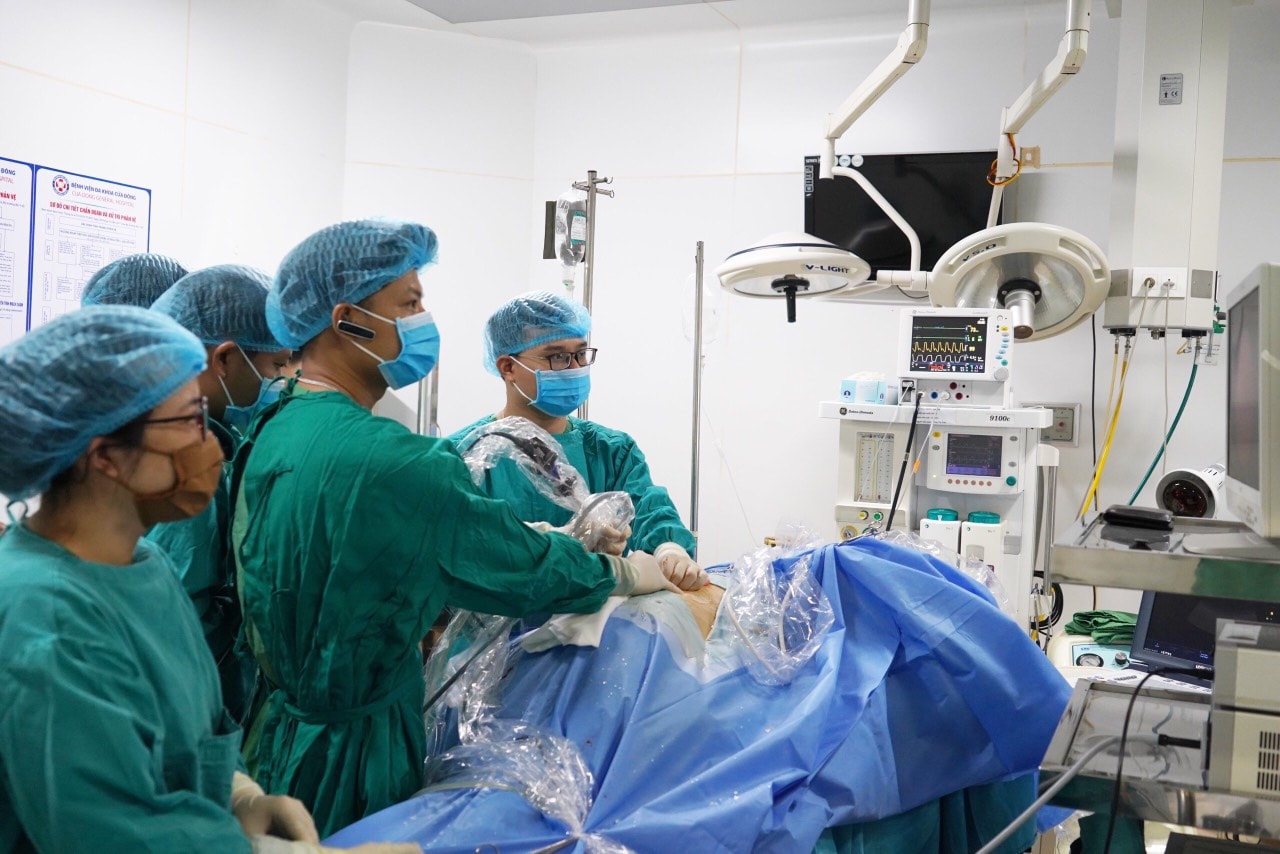 |
| Cua Dong General Hospital has successfully implemented the percutaneous nephrolithotomy technique, which is safe, minimally invasive, and highly effective for patients. Photo: Cao Phuong |
Cua Dong General Hospital is a unit that focuses on investing in high-quality human resources, fully equipped with high-tech machinery and technology, combined with mastering the most modern stone treatment methods to detect and treat all types of stones with different sizes and locations, ensuring the criteria of efficiency, safety, and speed; helping people have the opportunity to choose high-quality medical services, saving time and treatment costs.
According to Dr. Trinh Duy Vinh - Department of General Surgery, Cua Dong General Hospital: Urinary stones include many types located in the kidneys, ureters, bladder, urethra... Depending on the location, shape, size and kidney function, doctors will prescribe the most appropriate treatment methods for patients.
Currently, Cua Dong General Hospital has applied a variety of advanced stone treatment techniques such as: using stone-dissolving drugs, extracorporeal lithotripsy, retrograde endoscopic laser lithotripsy, retroperitoneal laparoscopic surgery to remove stones, percutaneous nephrolithotomy using a small tunnel under ultrasound guidance, open surgery... Applying treatment for each specific stone pathology brings the highest and most optimal efficiency.
Pioneer in applying advanced stone treatment techniquesPercutaneous nephrolithotomy using small tunnelunder ultrasound guidance:Nowadays, with the application of high technology in medicine, minimally invasive surgery in the treatment of kidney and urinary stones is increasingly dominant. The method of percutaneous nephrolithotomy using a small laser tunnel under ultrasound guidance has just been applied at Cua Dong General Hospital and is trusted and chosen by many patients.
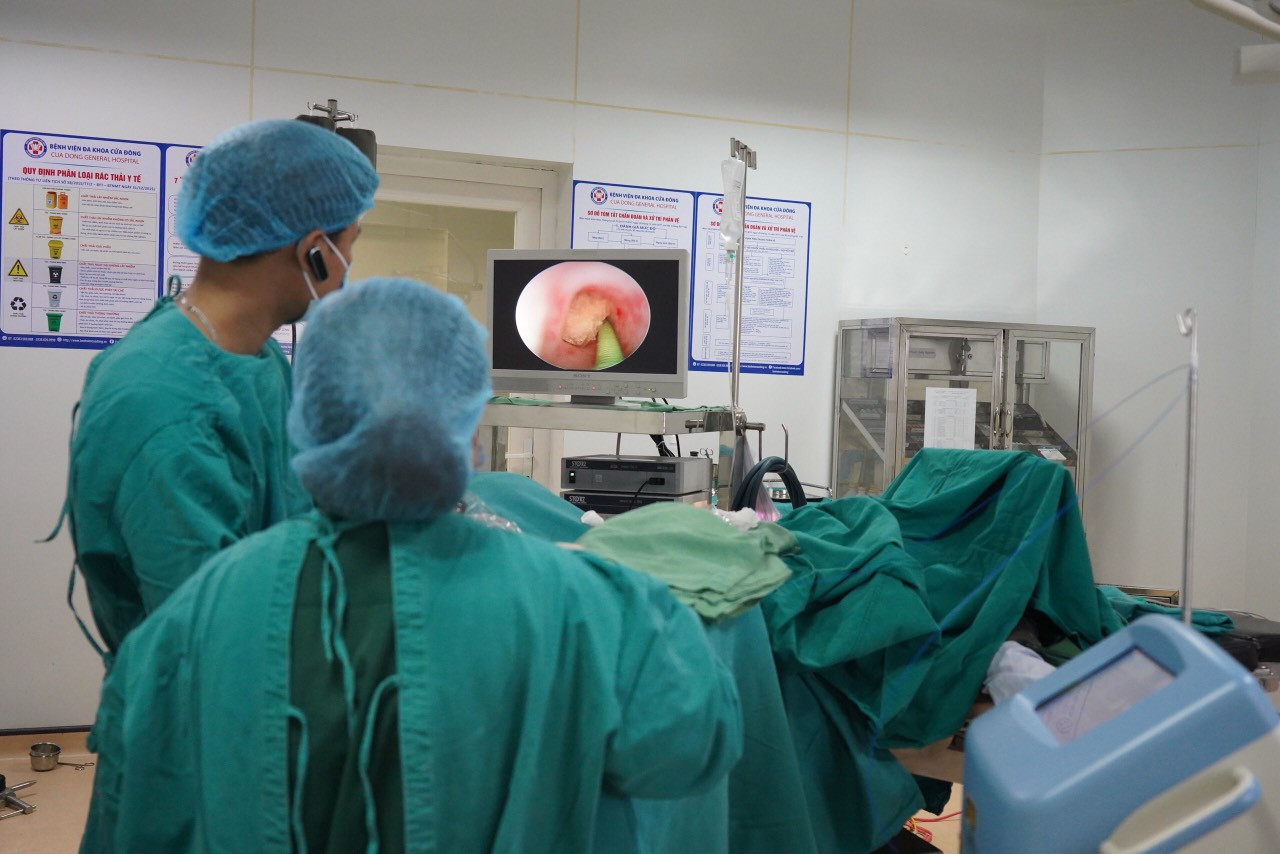 |
| The hospital has successfully implemented techniques such as retrograde endoscopic lithotripsy with laser, extracorporeal lithotripsy... with high efficiency in treating kidney stones for patients. Photo: Cao Phuong |
Recently, doctors of the General Surgery Department successfully performed percutaneous nephrolithotomy for patient Nguyen Thi Hong T. (28 years old, Can Loc - Ha Tinh). The patient was admitted to the hospital with pain in the right lower back for 1 month, the pain was dull and increased when doing heavy work.
Clinical and paraclinical examination results showed that the patient had many stones concentrated in rows, the largest stone size d = 20 mm. The doctors prescribed percutaneous nephrolithotomy for the patient.
Only 3 days after surgery, the patient's health was stable, he could walk and live normally; all the stones were completely removed. Patient T. happily shared: "My health quickly recovered, freed from the daily pain and discomfort without having to endure much pain during and after surgery and the large scar that caused loss of aesthetics."
Percutaneous endoscopic lithotripsy is considered a “revolution” in the treatment of urinary tract stones. This is an advanced, modern surgical method with many outstanding features: minimally invasive, less painful, highly effective, guaranteed aesthetics… effectively replacing previous open surgery.
The surgical scar is less than 1cm, so it eliminates complications related to large incisions such as less pain, less wound infection, and aesthetics. Moreover, this technique has less impact on kidney function, patients recover quickly, and the hospital stay is short. In particular, the surgical process allows for examination of all renal calyces, thus minimizing the possibility of remaining stones.
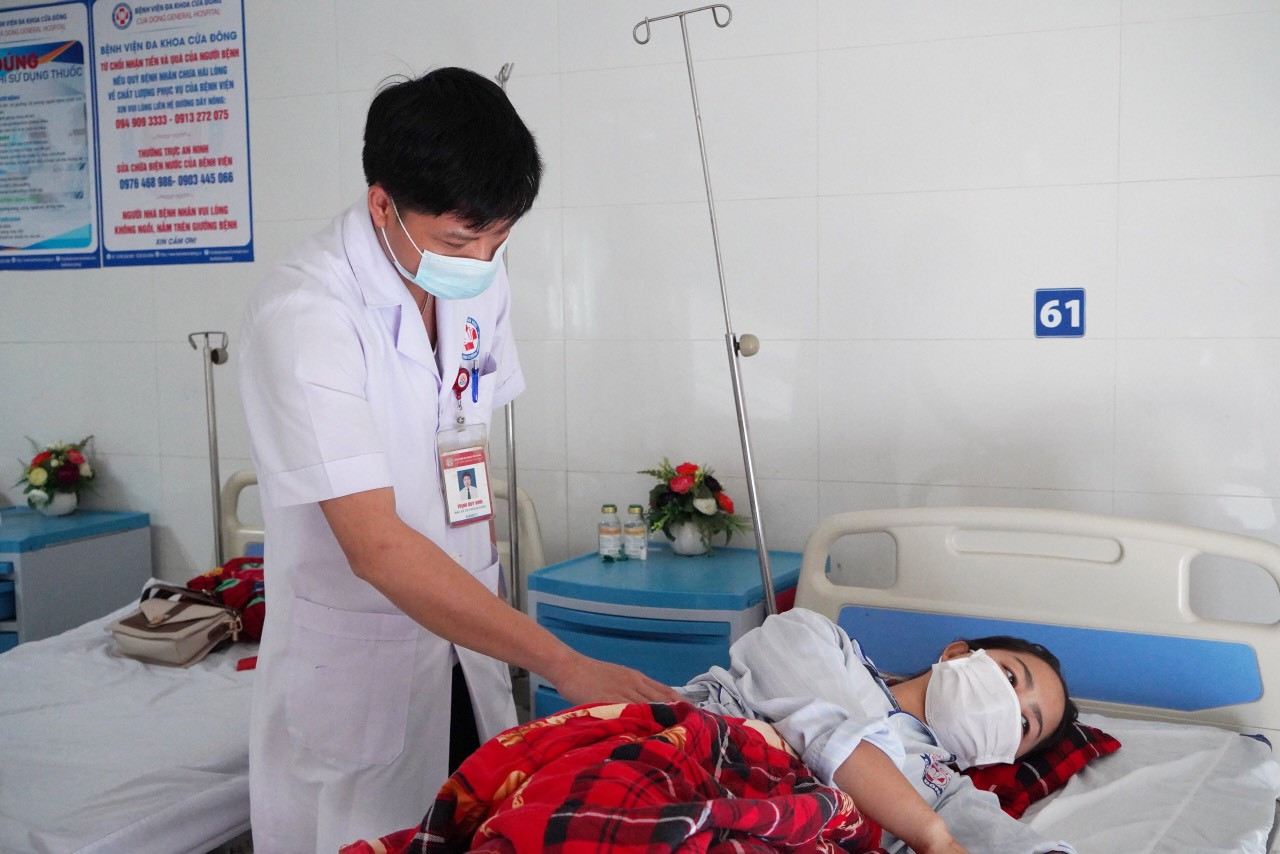 |
| After undergoing percutaneous nephrolithotomy, the patient quickly recovered, had less pain, and was discharged early. Photo: Cao Phuong |
Laser lithotripsyby semi-rigid endoscope and flexible endoscope:Considered a modern, minimally invasive technique in the treatment of urinary tract stones. This technique is performed by inserting an endoscope through the urinary tract into the ureter - renal pelvis, into the renal calyces and crushing the stones... This technique helps to preserve maximum kidney function, without incisions (performed through the natural urinary tract), helping the patient recover quickly, the patient can be discharged after 1 - 2 days.
Plaparoscopic retroperitoneal stone surgery: Retroperitoneal laparoscopic stone removal is a minimally invasive intervention method for endoscopic stone removal via the retroperitoneal approach. This surgical method is considered minimally invasive, safe, effective, and can be performed on upper ureteral and renal pelvis stones.
Extracorporeal shock wave lithotripsy:It is a non-surgical treatment for stones, using electric pulses to crush stones. It is indicated for crushing small stones (diameter less than 2cm). It has many outstanding advantages such as no scarring, short procedure time (about 1 hour), quick recovery and no need for hospitalization.
Stone removal surgery (open surgery):As a classic surgical method, today with the development of medicine, minimally invasive techniques are increasingly developed, so open surgery is gradually limited. Open surgery has some disadvantages such as long incision, having to cut many tendons and muscles, so the patient has a lot of pain after surgery, leading to a long hospital stay and long recovery time. However, in certain cases, open surgery is the most optimal choice.
Dr. Trinh Duy Vinh - Department of General Surgery, Cua Dong General Hospital recommends: "Kidney stones in general, urinary stones in particular are common diseases, easy to relapse, the disease can occur throughout life, especially in people who are prone to forming stones. Everyone should prevent the disease by drinking 2-3 liters of water per day, a low-salt diet, limiting canned, greasy, fermented foods...; Limit bad habits that can affect the kidneys such as staying up late, holding urine... Cases that have had stones removed or crushed should have regular health check-ups to monitor regularly, avoid forming new stones".
Cua Dong General Hospital has a team of highly skilled and experienced professionals and modern equipment ready to meet the needs of high-tech services of patients in the most effective internal and surgical treatment of all types of urinary tract stones./.


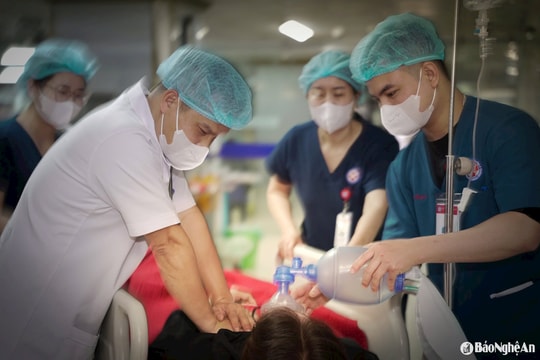
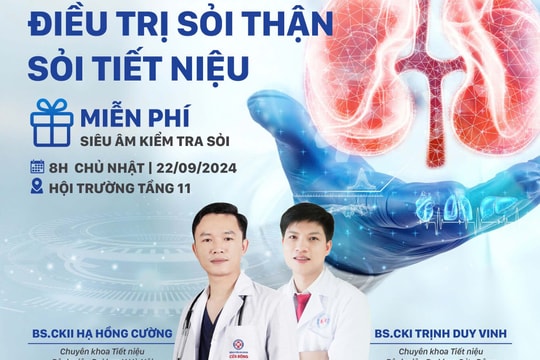
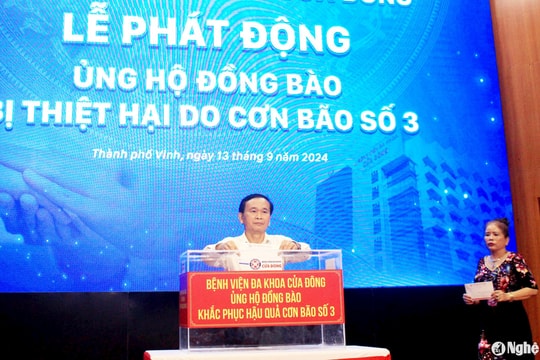
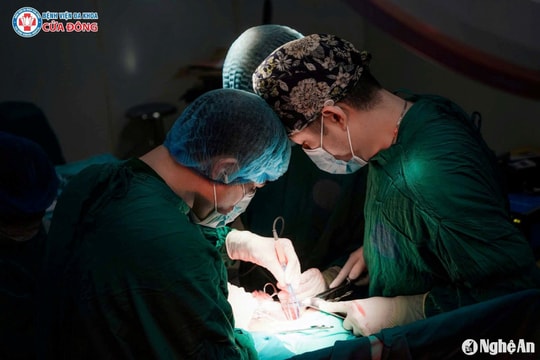

.jpg)
